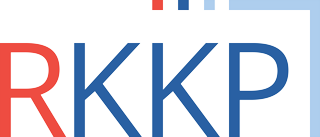EFFECTIVENESS OF ANTI-CORRUPTION BODIES IN SUPPRESSION OF CORRUPTION IN SELECTED COUNTRIES
Autor/i: Marina Matić Bošković,
Apstrakt: Many countries have established Anti-Corruption Agencies (ACA) in various forms, given them differing mandates and powers, and obtaining equally mixed results. The traditional anticorruption functions are prevention, including education and public awareness; investigation of corruption cases; prosecution of corruption cases and policy; and research and coordination. The aim of the article is to examine effectiveness of preventive Anti-Corruption Agencies in Western Balkan countries (Albania, Bosnia and Herzegovina, Former Yugoslav Republic of Macedonia, Kosovo, Montenegro and Serbia), and their achieved results. The different circumstances in these countries, the different strategies pursued by the agencies, and their different degrees of success, have yielded some useful suggestive insights, even though there are too many variables and too few data points for any definitive statistically significant conclusions. Factors that determine an Anti-Corruption Agencies effectiveness are political support from the country’s leadership and a clear and comprehensive legislative framework that delineates its powers and relationship with other policy agencies. Additional factors for successful functioning of ACA are guarantee of adequate resources and independence, accountability and relationship with citizens and media. The Western Balkan ACAs were assessed against these factors and accomplished track-record. The article is based on the desk research, analysis of statistical data published in Annual reports, finance and human resources data.
Ključne reči: corruption, anti-corruption authorities, resources, standards
Reference:
Literature
– Byrne E., Arnold A., Nagano F (2010), Building Public Support for Anti-Corruption Efforts – Why Anti-corruption Agencies need to communicate and how,
International Bank for Reconstruction and Development / The World Bank
Communication for Governance & Accountability Program (CommGAP).
– De Jaegere S. (2012) Principles for Anti-Corruption Agencies: A Game Changer. Jindal Journal of Public Policy, vol. 1, issue 1, pp. 79-121.
– Doig, A., Riley S. (1998) Transparency International, ‘Corruption and anti-corruption strategies: issues and case studies from developing countries’. In: Corruption and Integrity Improvement Initiatives in Developing Countries. New York: United Nations Development Program, pp. 45–62.
– Gabriela N. (2014) Korruption, Milliardenverluste für Entwicklungsländer. In: Eine Welt, Das DEZA-Magazin für Entwicklung und Zusammenarbeit, No. 2,
June 2014, pp. 17.
– Heilbrunn, J. R (2004) Anti-Corruption Commissions Panacea or Real Medicine to Fight Corruption?. Washington: World Bank Institut.
– Huther J., Shah A., (2000), Anti-Corruption Policies and Programs: A Framework for Evaluation, World Bank.
– Johnson J. (2016) Anti-Corruption Strategies in Fragile States: Theory and Practice in State Agencies, Edward Elgar.
– Matić Bošković, M. (2013) Specijalizovana antikorupcijska tela. In: Rabrenović, A. (ed.), Pravni mehanizmi sprečavanja korupcije u Jugoistočnoj Evropi: sa posebnim osvrtom na sektor odbrane, Belgrade, Institut za uporedno pravo, pp. 65-89.
– Pope J. (1999) Transparency International, ‘The need for, and role of, an independent anti-corruption agency’, Transparency International Working Paper, Berlin.
– Quah, J.T. (1982) ‘Bureaucratic corruption in the ASEAN countries: a comparative analysis of their anti-corruption strategies’, Journal of Southeast Asian Studies, 13(1), pp. 153–177;
– Quah, J.T. (2000) Confronting Corruption: The Elements of a National Integrity System, Berlin;
– Rose-Ackerman S. (2006) (ed.), International Handbook on the Economics of Corruption, Edward Elgar Publishing Limited.
Reports:
– 2008 Constitution, Official Gazette of Kosovo, No. 25/2012, 7/2013, 20/2015, Article 142.
– Bosnia and Herzegovina Report 2018, SWD(2018) 155 final, p. 12-15
– Decree on the Public Administration Organization and Operating Procedures
(Uredba o organizaciji i načinu rada državne uprave), Official Gazette of Montenegro, No. 5/12.
– EU Commission Bosnia and Herzegovina 2012 Progress Report, SWD (2012) 335 final, pp. 14.
– FRYOM 2018 Report, SWD(2018) 154 final, pp. 23.
– Global Competitiveness Report 2019, World Economic Forum, (2018)
– Kosovo 2018 Report, SWD(2018) 156 final, pp. 18.
– Law on Agency for the Prevention of Corruption and Coordination of the Fight
against Corruption (Zakon o Agenciji za prevenciju korupcije i koordinaciju borbe protiv korupcije), Official Gazette BIH, No. 103/09, 58/13.
– Law on Anti-Corruption Agency (Zakon o Agenciji za borbu protiv korupcije). Official Gazette of Republic of Serbia, No. 97/2008, 53/2010, 66/2011, 67/2013, 112/2013, 8/2015.
– Law on Prevention of Corruption, Official Gazette of Republic of Montenegro, No. 53/2014.
– Law on the Prevention of Corruption, Official Gazette of the Republic of Macedonia No. 28/2002; 46/2004; 126/2006; 10/2008; 161/2008 and 145/2010.
– Montenegro Report 2018, SWD(2018) 150 final, p. 18-23.
– OECD, (2008). Specialized anti-corruption institutions: Review of Models
– OECD, (2013), Review of Models, Specialized anti-corruption institutions
– Serbia Report 2018, SWD(2018) 152 final, p. 19-23.
– South Africa Anti-Corruption Architecture, (2012), Basel Institute on Governance, International Centre for Asset Recovery.
– UNDP (2011), Practitioners’ Guide: Capacity Assessment of Anti-Corruption Agencies, 9.
– World Bank’s World Governance Indicators for Control of Corruption and Transparency International Corruption Perception Index
